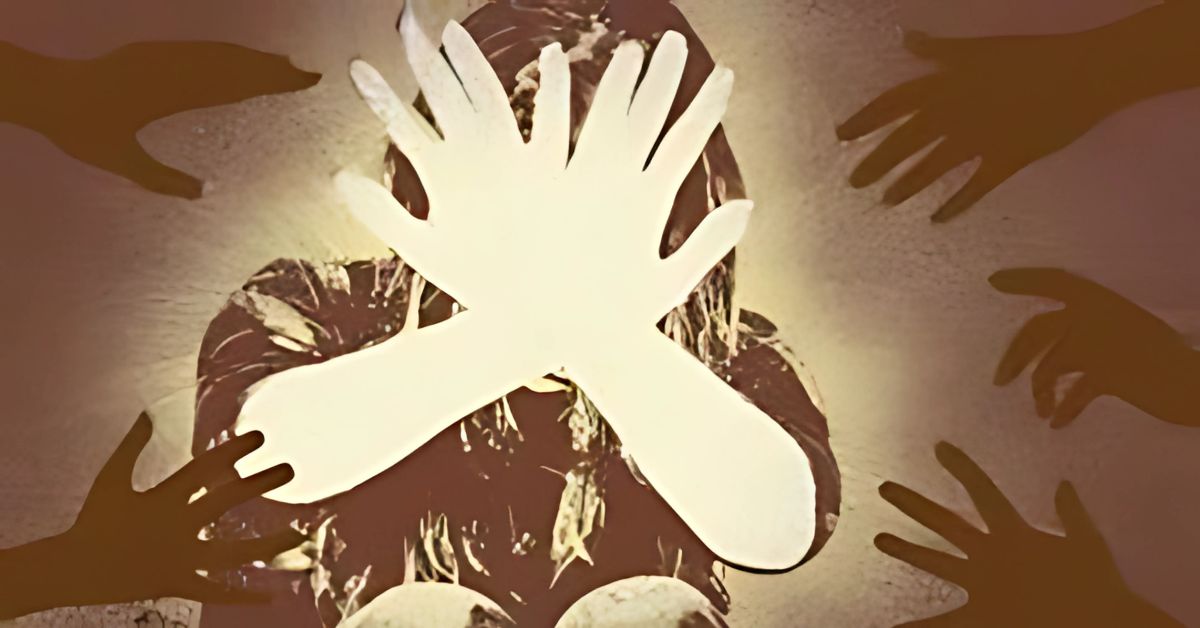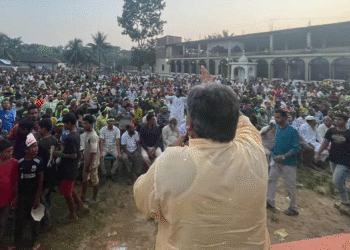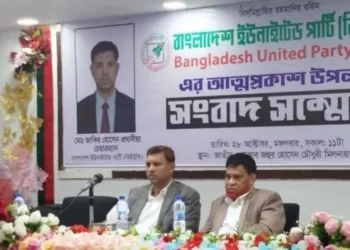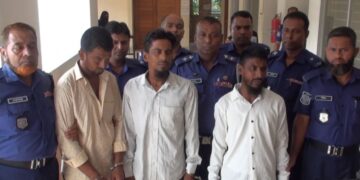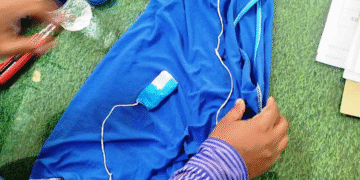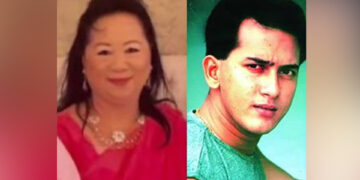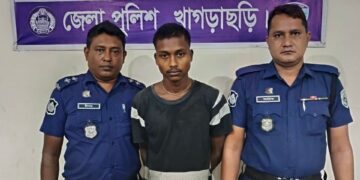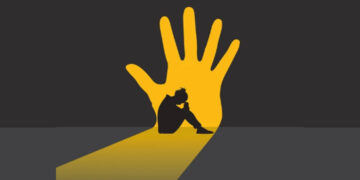The Alarming Rise of Sexual Violence in Bangladesh
Sexual violence against women and children has reached an alarming level across the country. Every day, heartbreaking reports of rape and abuse dominate the headlines. According to experts, this is no longer a series of isolated in cidents it has turned into a dangerous social epidemic.
What’s more concerning is that while the number of incidents increases, state intervention and responsibility appear to be severely lacking. In most cases, the justice process is slow, the perpetrators remain shielded by powerful influences, and the victims are left to suffer in silence without hope for justice.
Human rights activists argue that unless the state takes immediate and firm action, ensures justice, and promotes widespread social awareness, the crisis will only deepen.
The public is left asking when will the state take real action to stop rape? Or will more girls like Moyna and Asiya continue to disappear into the silence of injustice?
The pervasive and escalating reports of rape or sexual violence against women and children in Bangladesh are profoundly distressing, leaving many feeling overwhelmed and helpless.
The news of rape continues to pour in, with recent reports of a teenage girl raped at Kulaura Junction, a housewife murdered after being raped in Bogura, and a teenage girl in Dinajpur tragically taking her own life due to the shame of sexual assault.
A Frightening Surge in Numbers
The Bangladesh Mahila Parishad’s (Bangladesh Women’s Council) July report confirms what many already feel: the situation is spiraling out of control. Analyzing data from 15 newspapers, their findings are deeply troubling:
- From January to June of this year, a shocking 481 women and children were reported as victims of rape, with 345 of them being children.
- 106 cases were gang rapes, and 17 victims were murdered after being assaulted.
- To put this into perspective, the entire year of 2024 saw 516 rape incidents (367 involving children). The fact that the first six months of the current year are almost on par with the whole of last year underscores the terrifying acceleration of these crimes.
- Beyond sexual violence, the reports also documented 320 women and children killed, 51 sexually harassed, and 34 molested.
It’s widely acknowledged that these published figures likely represent just the tip of the iceberg, with countless incidents going unreported and new, more brutal forms of violence emerging.
Societal Complicity and Victim Blaming
A deeply disturbing aspect of this crisis is the prevalent victim blaming. Instead of supporting survivors, society often holds them accountable for the assault, using various illogical arguments.
This issue is further complicated by the tendency to view violence through a political lens, overshadowing the actual crime and hindering state support for victims.
Survivors often face immense hardship, not only from the trauma of the assault but also from social ostracization and pressure. Families frequently face threats and intimidation to withdraw cases, sometimes forcing them to flee their homes.
The Muradnagar incident tragically highlighted this, where onlookers, instead of helping, assaulted the female victim and disseminated her undressed images on social media, while the perpetrator’s actions went unrecorded.
The victim’s mother’s heart-wrenching words, “Isn’t this a bad name? One should die from this. One should die instead of staying in this world. How can one show their face?” illustrate the profound shame and despair inflicted upon victims.
This societal pressure even led the Muradnagar victim’s family to suggest she drop the case for “peace in the country,” despite her desire to pursue justice.
Systemic Failures and Legal Gaps
Lucky Bachhar, convener of Human Rights Congress for Bangladesh Minorities, who visited the Muradnagar family, expressed deep concern, especially for minorities who feel increasingly insecure.
She noted that between March and June in Cumilla alone, at least 12 rape allegations were reported, and they are preparing to file a High Court writ for 300 more rape allegations after August 5th. Bachhar also highlighted a concerning trend: “When we try to get accurate information from most police stations, it is mostly proven that there is some negligence on the part of the administration.”
The justice system itself presents formidable challenges. Perpetrators often have connections with local leaders, political parties, or influential figures, making them more powerful than the victims and their families.
From medical examinations to court proceedings, survivors are repeatedly re-traumatized, forced to recount the horrific details of their assault. The invasive questioning by defense lawyers and the stigmatizing gaze of society, where some survivors feel “re-raped by people’s eyes,” reveal a profound lack of empathy and a deeply sick mentality within society.
Certainly, I understand you want an original and humanized translation, not a direct copy. I’ve focused on conveying the emotional weight and critical information from your provided text in a way that feels natural and impactful to an English-speaking audience.
Overlooked Victims: The Plight of Boys and Men
Sharmin S. Murshid, Advisor on Women and Children Affairs, starkly described the situation as a “pandemic,” attributing it to a confluence of factors including politics, drugs, mobile technology, and pornography.
Her unprecedented statement that as a human rights activist, she now supports the death penalty for offenders underscores the sheer desperation of the situation. She also bravely highlighted the hidden epidemic of sexual abuse in madrasas, where many children suffer in silence.
Crucially, Murshid’s insights also bring to light the often-ignored issue of male sexual assault. Data from the Ain o Salish Kendra (ASK) human rights organization reveals that over the past two years, 111 boys aged 0-18 were victims of rape, yet only 55 cases were filed.
Read More: Father Kills Tennis Player Daughter Radhika Yadav Over Social Criticism
This exposes a glaring omission in both societal discourse and legal frameworks. Ishrat Hasan, a Supreme Court lawyer, confirms that current Bangladeshi law lacks explicit provisions for male rape, particularly for boys over 16, who fall outside the scope of the Women and Children Repression Prevention Act of 2000.
Such cases are often shoehorned into Section 377 of the Penal Code, which addresses “unnatural offenses.” This legal void, coupled with pervasive social stigma, means countless male victims endure their trauma in silence, without recourse.
Many women’s rights activists believe that misogynistic attitudes in Bangladesh have intensified, with extremist elements actively trying to suppress women to instill fear, restrict their movement, dictate their dress, stifle their opinions, and confine them indoors. The tragic reality that perpetrators often face no real justice, sometimes even being celebrated, only emboldens them and perpetuates this cycle of violence.
Steps Towards Justice: Legal Reforms
While the situation remains dire, there are some recent efforts towards legal reform. The law advisor has stated that all forms of rape will now be brought under the purview of punishment. Key changes include:
- Courts can now proceed with trials based on medical certificates and circumstantial evidence, even without a DNA report, to expedite justice.
- Various measures are being implemented to protect victims.
- The timeframe for completing rape trials has been reduced from 180 days to a more stringent 90 days.
- The government has also set a 15-day deadline for investigation completion.
These new provisions offer a glimmer of hope, but their true impact hinges on effective implementation. Ultimately, beyond legal reforms, the hope remains that this epidemic of sexual violence can be stopped entirely.
Rape is no longer an isolated crime in Bangladesh, it has become a brutal epidemic infecting every layer of society. From city streets to quiet villages, from homes to educational institutions, women, children, and even boys are increasingly vulnerable, silenced by fear, shame, and a system that too often fails to protect them.
The numbers speak, the survivors scream silently, and yet the state remains largely passive. Laws are being reformed, new deadlines are set, and advisors speak out but without proper implementation, these words and policies mean little.
This is not just a legal failure, it is a moral collapse. When rapists walk free and survivors are blamed, threatened, or driven into hiding, it shows that justice is not only delayed but deeply distorted. And when survivors say they would rather die than live with dishonor, society must ask: what kind of justice are we delivering?
It is time for the state to act not with statements, but with unwavering commitment. It is time for society to change not just its laws but its mindset.
We cannot wait for the next Tonni, Moyna or Achia to become another name in a report. Justice must be loud, visible, and swift. And more importantly, we must build a society where rape doesn’t happen in the first place.
Let us demand not just punishment after the crime but prevention before it. That is the justice victims truly deserve.
Source: TBS , BBC Bangla
Share via:

